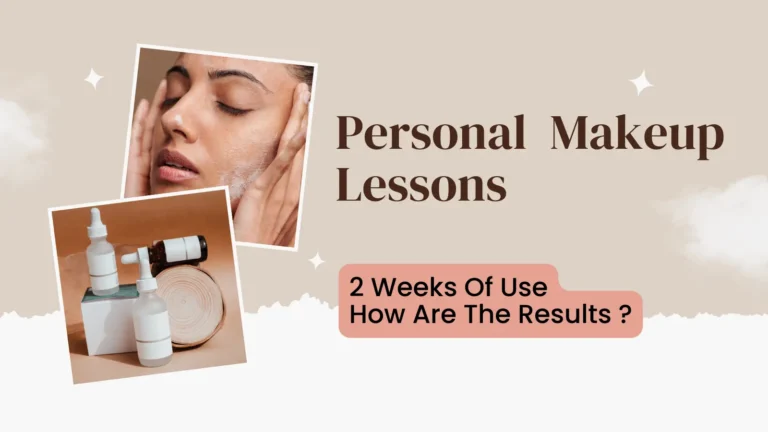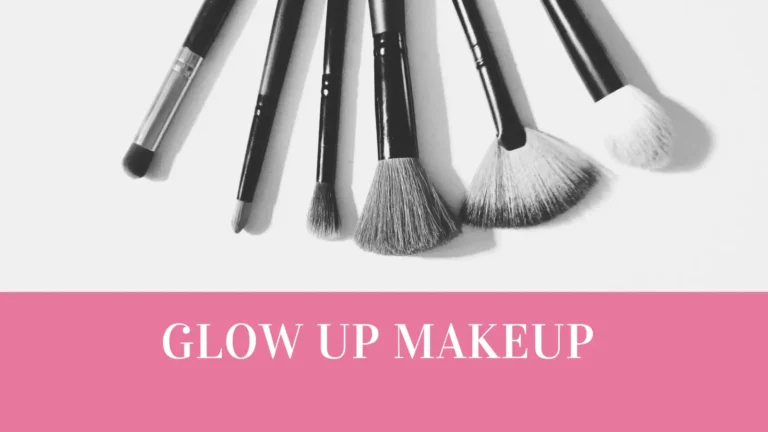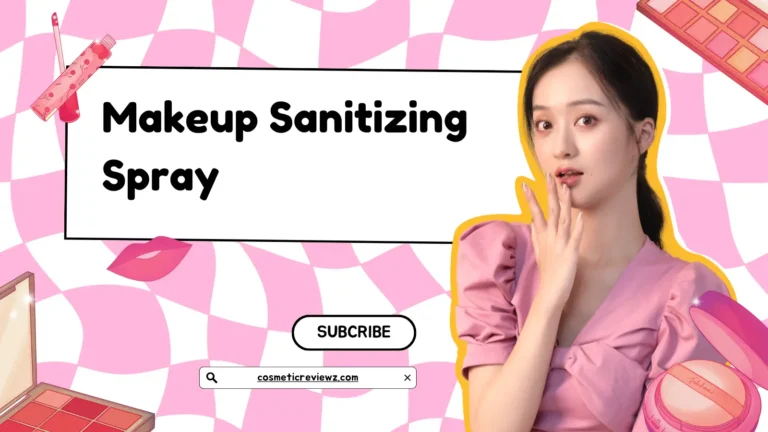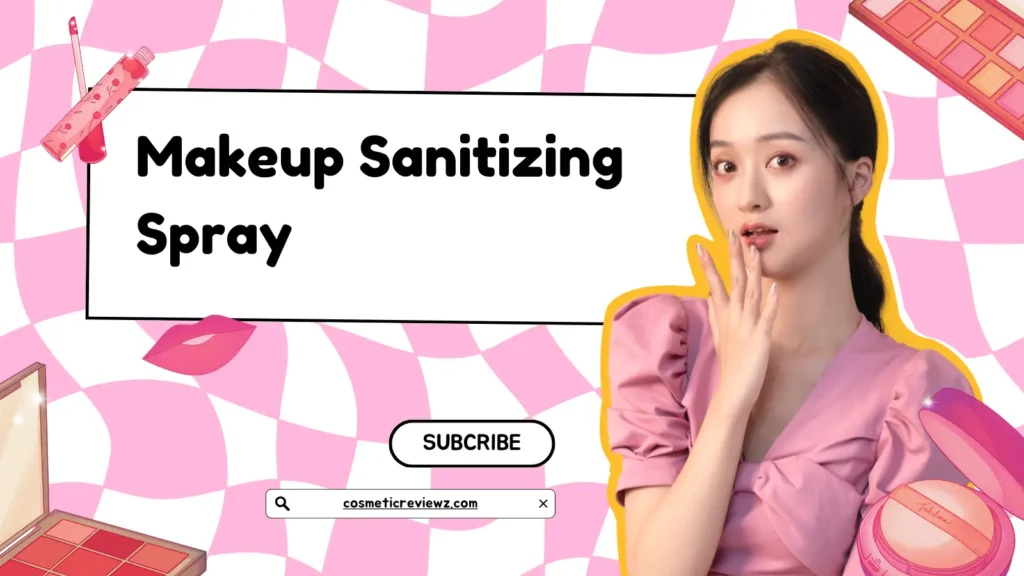
Makeup Sanitizing Spray: A Must-Have for Your Beauty Routine
Hygiene is as crucial to makeup application as the actual product. With the rise of awareness about skincare and cleanliness, the makeup sanitizing spray has become an essential product in every beauty enthusiast’s arsenal. It ensures that your makeup products are clean, safe, and free from harmful bacteria, helping you maintain healthy skin.
In this article, we’ll dive deep into the importance of makeup sanitizing spray, how to use it, and tips for keeping your makeup kit germ-free.
Why Is Makeup Sanitizing Spray Important?
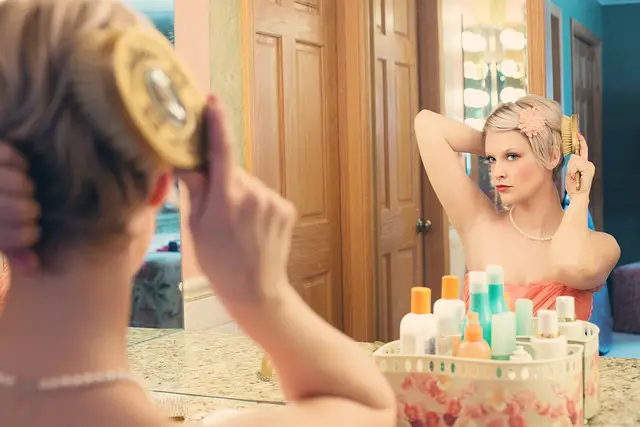
Image by Jill Wellington from Pixabay
Makeup products like powders, foundations, lipsticks, and brushes often come into direct contact with our skin, making them prone to contamination. Bacteria, oils, and other debris can accumulate on your tools and products, leading to skin irritation or breakouts. Using a sanitizing spray regularly:
- Reduces the risk of infections caused by dirty makeup tools.
- Prolongs the shelf life of your products.
- Keeps your skin healthier and glowing.
How to Use Makeup Sanitizing Spray Effectively
While the idea might sound simple, using a makeup sanitizing spray correctly ensures maximum benefits. Follow these easy steps:
- For Makeup Brushes and Tools
Spray the sanitizer directly onto the bristles of your makeup brushes.
Let them air dry before storing them back in your kit.
- For Makeup Palettes
Hold the spray about 6 inches away and lightly mist the surface of eyeshadow, blush, or contour palettes.
Avoid oversaturating to preserve the texture of your products.
- For Lipsticks and Mascara Wands
Extend the lipstick bullet and mist it gently, ensuring it’s evenly coated.
For mascara wands, spray onto a clean tissue and wipe the wand clean.
Benefits of Makeup Sanitizing Spray Over Traditional Cleaning Methods
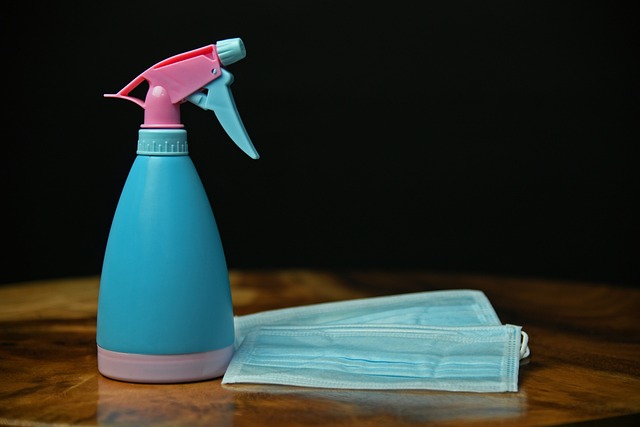
Image by KIMSENG SE from Pixabay
Unlike soap and water, a sanitizing spray is designed specifically for makeup products. It doesn’t alter the formula of powders or creams, and it dries quickly, making it convenient for daily use. Other benefits include:
- Gentle on sensitive makeup formulations.
- Easy to carry in your travel bag.
- Instant results with minimal effort.
What to Look for in a Makeup Sanitizing Spray
With various options available in the market, here are a few factors to consider when choosing the perfect spray:
- Ingredients: Look for alcohol-based sprays, as they’re most effective against bacteria. Additionally, look for ingredients that are good for your skin, such as vitamin E or aloe vera.
- Spray Mechanism: A fine mist ensures even coverage without soaking the products.
- Size: Compact options are perfect for travel, while larger bottles are more economical for at-home use.
Tips to Maintain a Clean Makeup Kit
Sanitizing your makeup is just one part of maintaining a clean beauty routine. Consider these additional tips:
- Store your makeup in a cool, dry place to prevent bacterial growth.
- Replace products like mascara and eyeliner every 3-6 months.
- Wash reusable tools like sponges weekly to prevent buildup.
The Science Behind Makeup Contamination
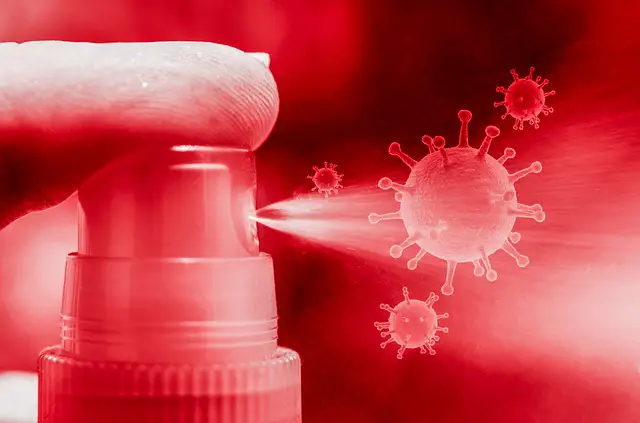
Image by Mohamed Hassan from Pixabay
Have you ever wondered how quickly makeup products can get contaminated? Studies have shown that makeup can harbor harmful bacteria such as Staphylococcus aureus and Escherichia coli, especially if products are shared or not stored properly. These microbes thrive in the moist, dark environments often found in our makeup bags. For example:
- Powders and pressed products: While seemingly dry, their surfaces can still trap oils and bacteria from brushes or fingers.
- Liquid and cream products: These provide the perfect breeding ground for bacteria due to their moisture content.
- Reusable tools: Sponges and brushes pick up dirt, oils, and dead skin cells with every use, creating a haven for germs.
Using a makeup sanitizing spray minimizes contamination, reducing the risk of skin irritation, acne, and infections.
Misconceptions About Cleaning Makeup Products
Despite the growing popularity of sanitizing sprays, there are several misconceptions that prevent people from adopting this essential habit:
- “It is not necessary to clean dry products.”
Even powders and pressed makeup can harbor bacteria. Regular sanitizing ensures these products remain clean and safe for use.
- “Alcohol damages makeup products.”
While alcohol-based sprays are necessary for killing germs, high-quality sanitizing sprays use the right concentration to ensure effective cleaning without compromising the integrity of your makeup.
- “Sanitization is only necessary for professionals.”
Makeup sanitizing is essential for everyone, not just makeup artists. Keeping your personal products germ-free is just as important for maintaining healthy skin.
By addressing these misconceptions, more people can recognize the importance of makeup hygiene and adopt the use of sanitizing sprays.
DIY Makeup Sanitizing Spray: Is It Worth It?
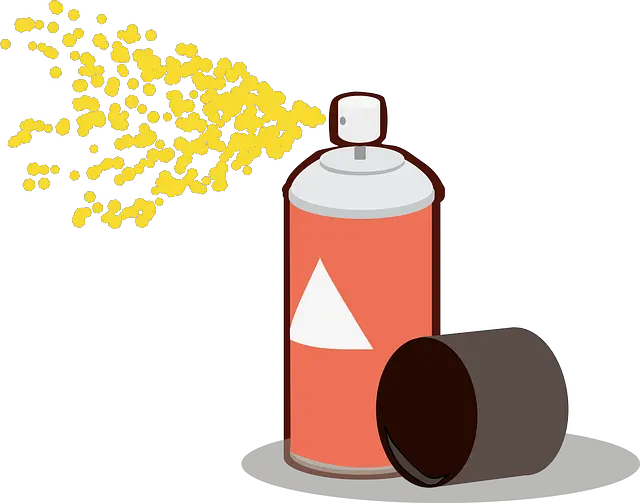
Image by OpenClipart-Vectors from Pixabay
With the rise of DIY culture, many beauty enthusiasts have tried creating their own sanitizing sprays at home. While this can be a cost-effective option, there are risks involved:
- Inaccurate formulations: Achieving the right alcohol concentration (at least 70%) is crucial for effective disinfection. A weaker solution may not kill bacteria, while a stronger one may damage your products.
- Lack of added benefits: Store-bought sprays often include additional ingredients like aloe vera or essential oils, which not only sanitize but also care for your products and skin.
- Short shelf life: DIY sprays may degrade quickly, reducing their effectiveness over time.
- While DIY options are tempting, investing in a high-quality, professionally formulated makeup sanitizing spray is often the safer choice.
How Often Should You Use a Makeup Sanitizing Spray?
The frequency of sanitizing depends on how often you use your makeup and tools. Here’s a simple guide:
- Daily Use: For brushes and tools that come into contact with liquids or creams (like foundation brushes), sanitize after every use.
- Powders and Pressed Products: Mist lightly every few days or after heavy use.
- Lipsticks and Mascara Wands: Sanitize once a week, especially if stored in warm or humid conditions.
- Shared Makeup: If you share makeup with others, sanitize before and after every use to avoid cross-contamination.
By following these timelines, you can keep your beauty products consistently clean and safe.
The Role of Packaging in Makeup Hygiene
Interestingly, the design and packaging of your makeup products play a significant role in maintaining hygiene. For instance:
- Airless Pumps: Foundations and serums with airless pumps reduce the need to dip fingers or brushes into the product, minimizing contamination.
- Twist-Up Tubes: Products like lipsticks or concealers in twist-up formats are easier to sanitize than those in pots.
- Magnetic Closures: Palettes with secure closures protect powders from airborne particles and bacteria.
While packaging can help reduce contamination risks, it’s not foolproof. That’s where regular use of makeup sanitizing spray comes in—it adds an extra layer of protection regardless of the packaging type.
Choosing the Right Makeup Sanitizing Spray for You
With so many options available, selecting the right product can feel overwhelming. Here are some factors to consider:
- Skin Sensitivity: If you have sensitive skin, opt for sprays with added soothing ingredients like chamomile or aloe vera.
- Fragrance-Free Options: For those sensitive to scents, choose unscented sprays to avoid irritation.
- Eco-Friendly Choices: Many brands now offer cruelty-free, vegan, and environmentally friendly sprays.
- 4. Multipurpose Functionality: Some sprays can be used for both tools and makeup products, making them a versatile addition to your routine.
Reading reviews and checking ingredient lists can help you make an informed decision that suits your needs.
What Happens If You Don’t Sanitize Your Makeup?
Neglecting to clean your makeup products and tools can lead to a host of problems:
- Skin Issues: Clogged pores, acne, and allergic reactions can result from using contaminated products.
- Product Degradation: Germs can break down the formula of your makeup, reducing its quality and effectiveness.
- Infections: Eye infections like conjunctivitis are common consequences of dirty mascara wands or eyeliner pencils.
By skipping the sanitizing step, you not only risk your skin’s health but also reduce the lifespan of your favorite beauty products.
Industry Insights: How Professionals Use Makeup Sanitizing Spray
Professional makeup artists rely heavily on sanitizing sprays, especially when working with multiple clients. Their best practices include:
- Sanitizing between clients: Brushes, palettes, and tools are sanitized immediately after each use.
- Double-dipping prevention: Tools like disposable applicators or spatulas are used alongside sanitizing sprays to avoid cross-contamination.
- Sanitizing storage containers: Even makeup bags and storage cases are misted with sanitizing spray to maintain a clean working environment.
Adopting these practices in your personal routine can ensure the same professional-level hygiene in your makeup collection.
Making Sanitizing a Habit
Incorporating makeup sanitizing spray into your routine doesn’t have to be time-consuming. Here are some tips to make it a seamless habit:
- Keep the spray visible: Store it alongside your daily makeup essentials as a visual reminder.
- Set reminders: Use alarms or calendar notifications to remind yourself to sanitize weekly.
- Combine tasks: While waiting for products to dry after sanitizing, clean your makeup bag or organize your tools.
With consistent effort, sanitizing will soon become second nature, ensuring your makeup routine is as clean as it is glamorous.
By expanding your knowledge and habits around makeup hygiene, you’re not just protecting your skin—you’re also elevating your beauty routine to a professional level. Investing in a high-quality makeup sanitizing spray is a small step with long-lasting benefits for your skin and your favorite products.
Stay safe, stay beautiful, and let your clean makeup routine shine!

